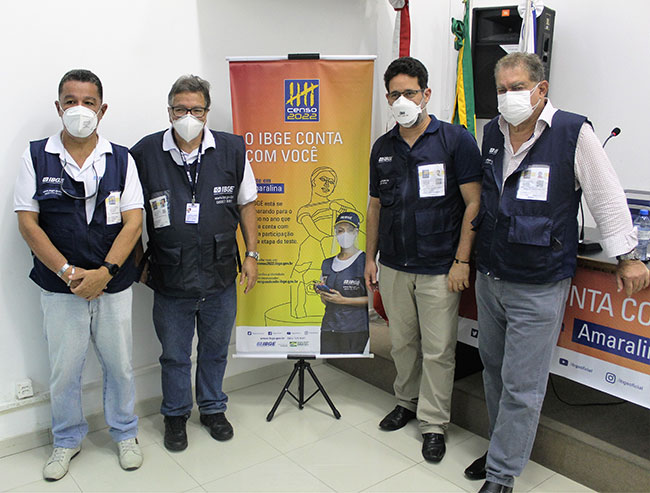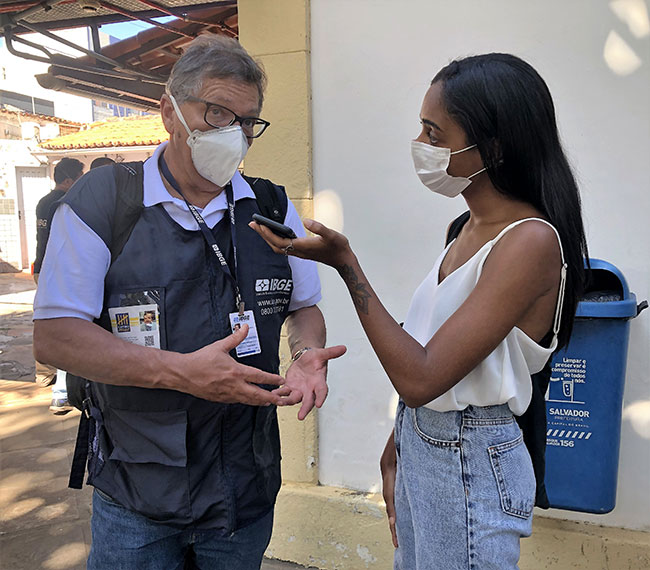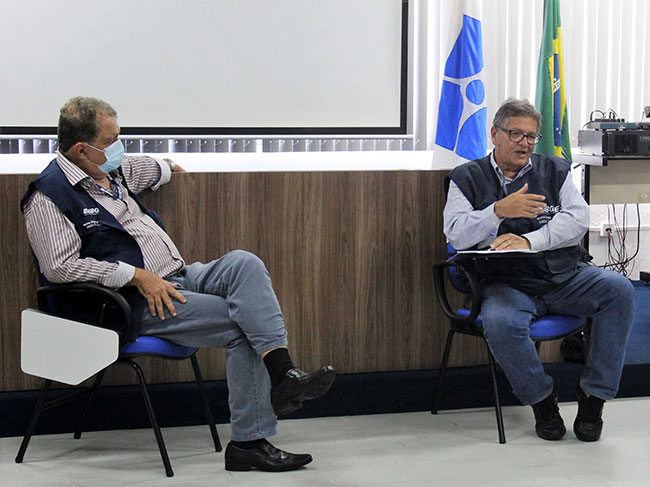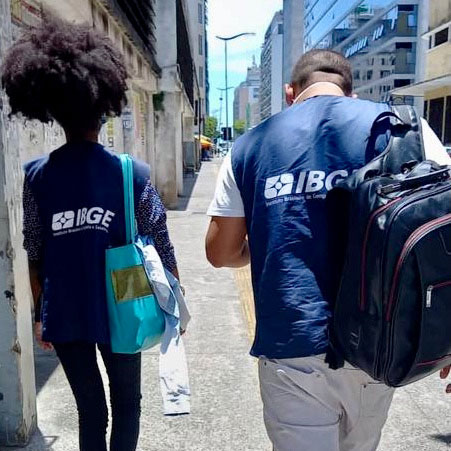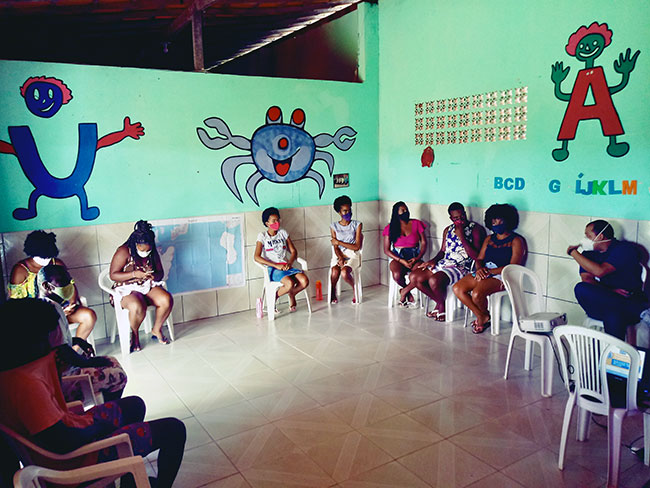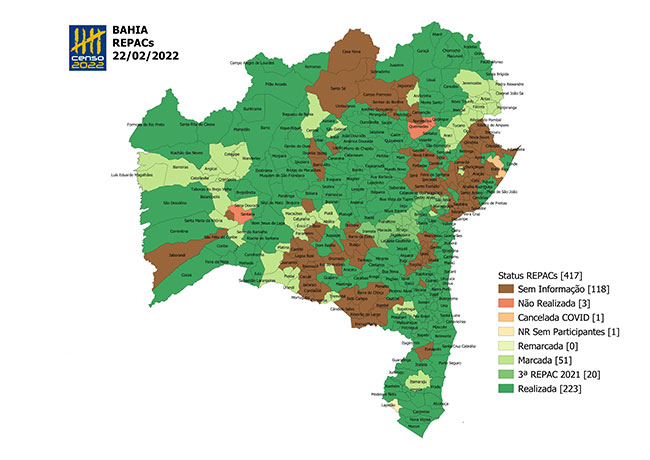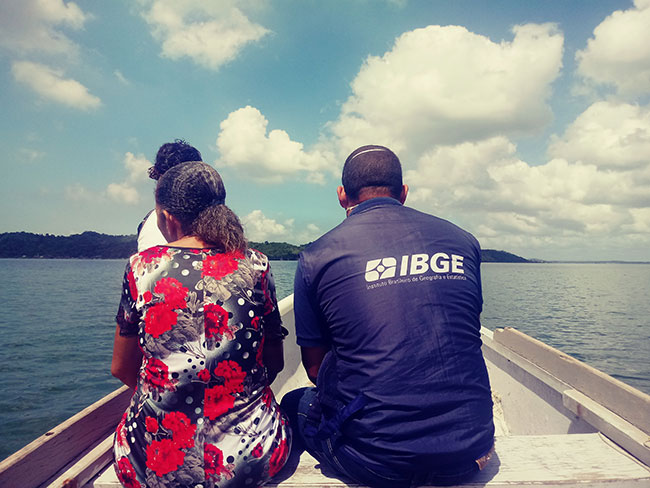The 'Summer of Census' in Bahia
February 21, 2022 11h00 | Last Updated: March 14, 2022 11h49

Some people say that the year begins right after Carnival in Brazil. Although summertime traditionally means holidays, parties and fun, everything changes in a year of Population Census! Since December 2021, the peak season has involved a lot of work, articulation and preparation all over Bahia, starting the countdown for the beginning of the expected census operation on August 1st.
The highlights of the “Summer of the 2022 Census” in the state were the Census Planning and Monitoring Meetings (REPACs), the participation in on-site and remote meetings with representatives from quilombola communities, the complete inclusion of data in the Information Database on Enumeration Areas (BIOS) and the revision of the association of the addresses to be visited and their localization in the map of enumeration areas.
Nearly 150 REPACs in nearly two months
Of the 244 REPACs carried out in Bahia since 2021 (in 58.5% of the 417 municipalities in the state), 99 of them were held between December 21 last year and February 16, 2022 (four out of ten). Other 48 meetings are scheduled and should happen until the end of this month. In other words, 147 meetings were carried out in nearly two months.
“Bahia is a state with many municipalities, so REPACs are always a challenge. Yet, the beginning of the year has been very productive. We began in the end of 2021 with determination, then with the simplified selection processes,” tells Luís Alberto Pacheco, the state coordinator of REPACs. “It was a very atypical summer,” joked Pacheco, who “tanned” with much work.
Besides a good number of people enrolled for temporary work in the Census, the most visible result of the “summer REPACs” was the selection of places to establish data collection units. Of the 104 sub-areas in Bahia, 101 have already established such spaces, most of them through local partnerships, especially with city administrations, traditional partners in this huge event.
In extraordinary meetings, a closer contact with quilombolas
The summer of the 2022 Census in Bahia was also time to get aboard an visit the islands of Maré, Frades and Bom Jesus dos Passos, which are neighborhoods of Salvador. Not to bathe in the “Caribbean Bahia”, as the three islands are known, but to approach important quilombola groups who live in these places.
Luiz Eduardo Oliveira, the area coordinator of Salvador, and Luís Alberto Pacheco, coordinator of REPACs, crossed the Todos os Santos Bay in January to talk with representatives from communities like Praia Grande and Bananeiras, in two extraordinary on-site REPACs. A third one was carried out remotely. “We approached the communities, analyzed the shifting logistics there and introduced the IBGE, for the local population to be familiar with us at Census time,” said Oliveira.
Moreover, the IBGE State Branch in Bahia (UE-BA) established a partnership with the Mário Leal Ferreira Foundation, linked with the City Hall of Salvador, which is developing a Neighborhood Plan for the Island of Maré and will support the dissemination of the census operation.
End of BIOS data collection mobilized teams in the entire state
The arrival of the summer matched the decrease in the restrictions in relation to the on-site work, which also accelerated the collection of information for BIOS.
In the entire Bahia, 104 sub-area census coordinators (CCSs), supported by area coordinators, fed this important database, which allows to better know the enumeration areas and their challenges.
Information on 12 different subjects was raised, seven of them with a potential impact on the work of enumerators (like security, need of a special logistics, existence of tenements and condominiums, etc.) and five related to the traditional communities and peoples (like existence of land, territories or groups of indigenous and quilombolas).
Besides the gradual return to the on-site work since October 2021, the end of the Census Test in Amaralina (Salvador) in the beginning of 2022 also favored to step up the BIOS data collection.
“We may highlight the visits carried out in Salvador downtown to confirm the existence of tenements, when nearly 60 places were investigated,” reminds Pedro Biscarde, the Census technical coordinator in Bahia.
The BIOS data collection should end on Friday, February 25. The major challenges in the final phase are security restriction and condominiums of difficult access. “It usually requires more fieldwork to obtain the information,” says Biscarde.
Mapped addresses
Another important task for the preparation of the Census that advanced a lot in the summer, in Bahia, was the revision of the association of the addresses with the corresponding block faces, i.e., the detailed work of “positioning” the addresses in each line of the map of the enumeration areas.
Francisco Brito, operational coordinator of the Census in Bahia, tells that 26.8% of the more than 672,000 block faces in Bahia were unassociated in 2018, i.e., without a corresponding line in the map of enumeration areas. The percentage was significantly reduced along these four years.
“We are reviewing the associations since November 2021, municipality by municipality, enumeration area by enumeration area. The position today, February 21, 2022, is of 360 out of 417 municipalities revised. The aim is to review all of them up to the end of February,” tells him.
Tests and visit of the President of IBGE
Even before the summer, one could feel the heat of the 2022 Census in Bahia and, of course, in the other 26 state branches. On November 4, the IBGE began the national tests in 27 localities strategically selected by the regional coordinations of the operation. In Salvador, the tests were carried out in the neighborhood of Amaralina.
“It was the materialization of our efforts and commitments with the Census” stated Francisco Brito, also known as Chico, when describing the sensation of receiving the visit of an IBGE enumerator in a Friday afternoon. “We got a foothold in Amaralina and we will begin to conquer the neighborhood, in the best sense of the word: by engaging the persons who live here and making them our partners,” said Mariana Viveiros, coordinator of Dissemination, at the time. “After all, the Census does not belong to the IBGE, but rather to everyone,” added her.
Besides conquering people, the tests in Amaralina mobilized the press. Four TV stations were present in the launching event (Bahia TV, an affiliate of the Globo TV, Itapoan/Record TV, Aratu/SBT TV and TVE/Educadora), as well as the major newspaper and news portal in Salvador (Correio). Bandnews Salvador radio station and the newspaper/website Tribuna da Bahia interviewed through telephone and a number of other portals announced the beginning of the pilot operation.
Eduardo Rios Neto, president of the IBGE, visited the UE-BA for the first time on November 17-18 to follow up the 2022 Census Test in the state. They were two days of a full agenda. Besides visiting the headquarter of the UE, where he met the managers in Bahia, Rios Neto visited Amaralina, visited the data collection unit of the Census Test in that neighborhood, talked with the census team in Salvador, including those directly involved in the test, met the mayor of Salvador and granted interviews, signaling the intensity of the coming “Summer of Census” in Bahia.
